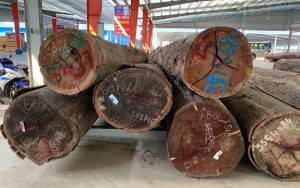
FPTF has demonstrated the degree to which timber and agricultural commodities on global markets are sourced from illegally deforested land, a finding that now underpins key multilateral and bilateral strategies for addressing deforestation. The vast majority of corporate commitments to reducing deforestation have centered around a few commodities in a handful of countries – Indonesia and Brazil chief among them. While targeting these countries is critical, doing so misses regions such as the Mekong, and less-traded commodities such as rubber, sugar, and rice. In Southeast Asia’s Mekong region, we have used this work to bridge policy processes focused on legality and climate change mitigation, advocating for a combination of sound regulation and good governance as an essential foundation to reforms in the natural resource sectors.
Read our reports on illegal logging and deforestation:
Consumer Goods and Deforestation (2014)
Indonesia’s timber supply gap (2015)
Ending Global Deforestation: Policy Options for Consumer Countries (2013)
Potential Legality Issues from Forest Conversion Timber (2013)
Identifying Illegality in Timber from Forest Conversion: A Review of Legality Definitions (2013)
Treatment of Conversion Timber in Consumer-Country Measures (2013)
Economic impacts of illegal agro-conversion in tropical forested countries (2018)
